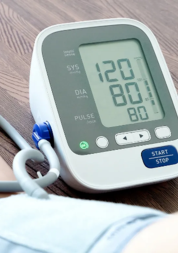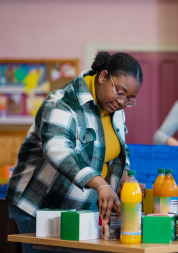My Voice Matters: Data analysis & review of factors that impact young people’s health & wellbeing in B&NES
We are proud to be able to give the opportunity for seldom heard voices to be heard by providers and wider organisations in their own words.
This report is data analysis which has been researched and written by a Young Healthwatch volunteer who is studying the University of West of England (UWE).

Over the last few years, mental health has been discussed as a key issue nationally and locally.
The aim of this report is to outline key facts and figures for Bath and North East Somerset (B&NES) about young people’s mental health and what does affect it.
TRIGGER WARNING - This report talks about self harm, rape and other sensitive topics.
Recommendations
• Given that households with younger heads (aged 16 to 24) are more likely to experience food insecurity and use food banks, it is crucial to provide targeted support and resources to this age group. This might include providing financial education and assistance programs, access to affordable housing and support networks among younger households.
• The decline in the prevalence of both lifetime and recent illicit drug use among young people, specifically 11–15-year-old pupils, is a positive trend. However, the increase in contact with alcohol treatment services, both locally and nationally, suggests a need for continued monitoring of alcohol misuse among young adults under 18. Tailored prevention and intervention programs should be in place to address alcohol-related issues.
• Based on the data indicating a consistently higher rate of hospital admissions for eating disorders in B&NES compared to other areas, this issue could be addressed by launching comprehensive awareness campaigns in B&NES to educate the community, schools, healthcare providers, and parents about the symptoms, and risks associated with eating disorders. Also, it would be beneficial to establish local support networks and resources for individuals and families who are already affected by eating disorders.
• The consistently higher incidence of self-harm among individuals aged 10-24 in B&NES is a concerning trend that requires focused attention and intervention. Addressing the higher incidence of self-harm in B&NES involves establishing youth-friendly mental health and support centres within the community where young individuals can access confidential assistance.
• The main recommendations to address the issue of households at risk of homelessness due to the termination of private assured shorthold tenancies are to implement stronger tenant protections, promote the development and availability of affordable housing options, and engage the community, local organisations, charities, and volunteers in supporting vulnerable households.
• To address the issue of violence against women, it is crucial to prioritise early intervention and prevention programs. By identifying signs of abuse and providing support at the earliest stages, we can help prevent incidents of violence and protect the well-being of women across all age groups.

